Despite being released over 60 years ago, the impact of Dune (titled in Vietnam as Xứ Cát) on culture remains profound, continuously stimulating imagination and evoking a lot of thoughts about its enduring value to this day.
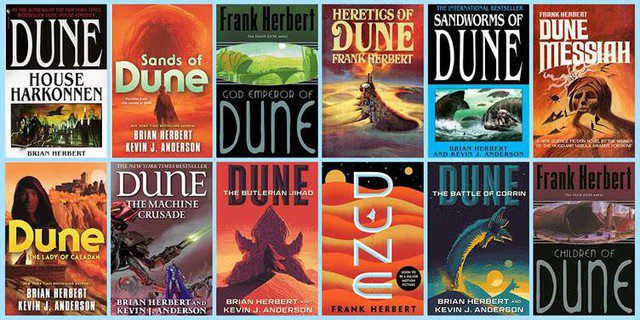
In the book The Worlds of Dune, writer Tom Huddlestone notes: “Some authors build the universe. Others merely use it as a backdrop.” Over the decades since its publication, Frank Herbert’s Dune has indeed become the best-selling science fiction novel of all time, certainly one of the most famous ever written, with sequels penned by Herbert himself, expansive adaptations by his son, and numerous film versions that have left an indelible mark on popular culture.
The narrative of Dune is set in a distant future where humanity has spread across the galaxy, forming a complex society filled with unique cultures, resources, and political dynamics. Under the rule of Padishah Emperor Shaddam IV, various noble families vie for control over planets. Each planet possesses its own culture, resources, and political systems, leading to intricate interplanetary conflicts.
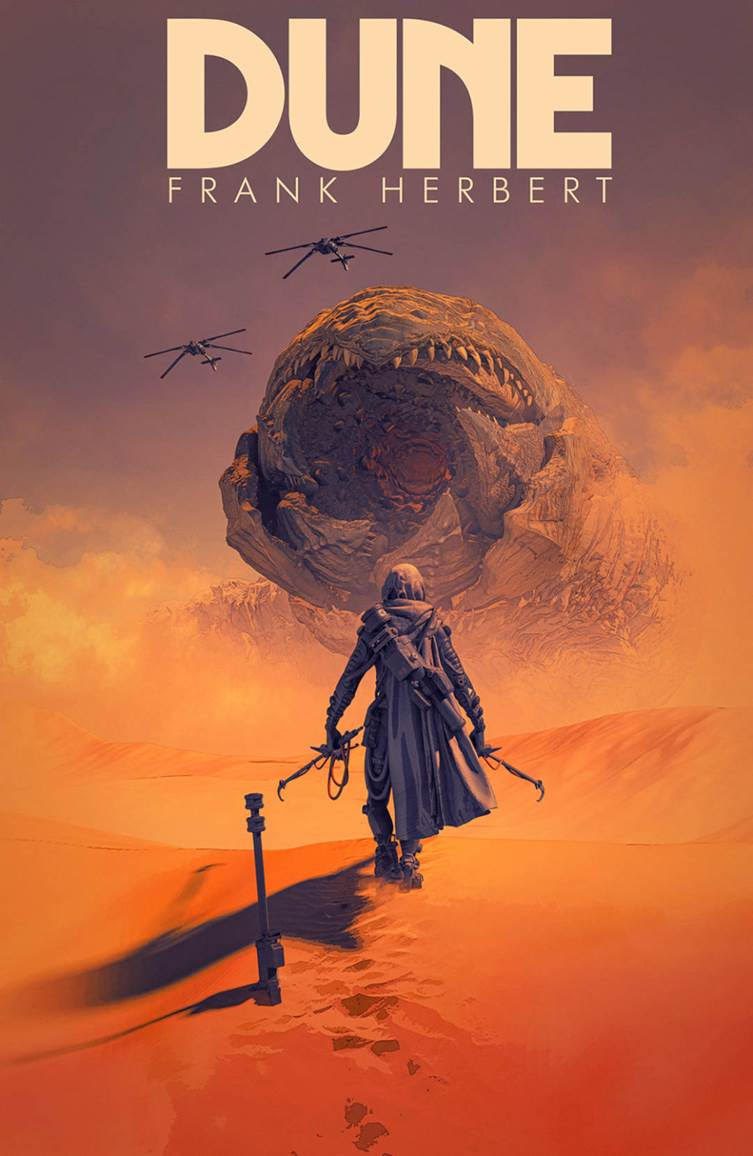
The Plot of Arrakis
Dune is set against a stunning backdrop of a desert planet, Arrakis, where the precious substance known as spice (melange) is found, the most valuable resource in the universe. Spice is only produced on Arrakis, making control of this planet both a coveted and dangerous endeavor. This vital resource fuels political alliances, economic interests, and even religious beliefs.
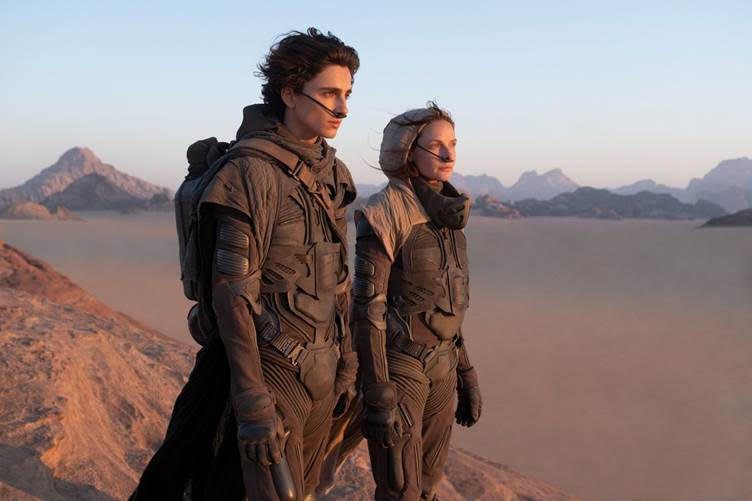
The Atreides family, struggling to survive, transitions from their lush home planet of Caladan to the harsh desert of Arrakis, with the mission to control spice production. The Atreides are soon embroiled in a web of betrayal by the rival Harkonnen family, leading to the downfall of Duke Leto Atreides and his wife, Lady Jessica, along with their son, Paul, as they navigate the treacherous sands of Arrakis.
Here, alliances with the Fremen, a native desert-dwelling people, take shape, as Paul adopts the title Muad’dib and leads a rebellion against the oppressive Harkonnens and the Emperor. Throughout this journey, he transforms into a revered leader among the Fremen, harnessing the spice to achieve extraordinary powers.
The Historical Context of Dune
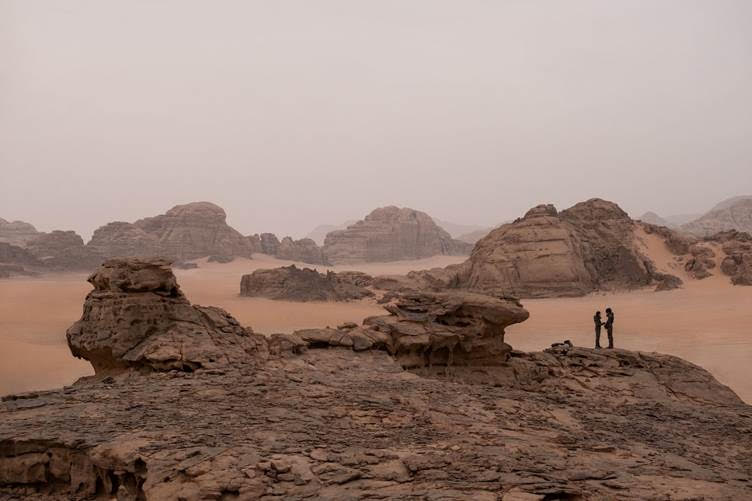
In the vast universe of speculative fiction, the emergence of Dune by Frank Herbert in 1965 is akin to a supernova. It was the culmination of a passionate exploration of ecology, philosophy, and human nature.
An article from 1959 about the sand dunes of Oregon inspired Herbert, motivating him to explore the contrasts and fragility of desert ecosystems. This obsession has become the foundation of Arrakis in subsequent narratives.

His research led Herbert to understand the political dynamics of desert cultures, drawing inspiration from T.E. Lawrence’s Seven Pillars of Wisdom. This is evident in the portrayal of the Fremen, desert warriors who embody the spirit of resistance against oppressive forces, making them crucial players in the universe of Dune.
Herbert crafted a rich tapestry of cultures, including the noble Atreides, the tyrannical Harkonnens, the warrior Fremen, and the Bene Gesserit – a secretive sisterhood with extraordinary abilities. Each group has its own history, motivations, and conflicts, creating a nuanced narrative about the interplay of power and survival.

Not only does Dune establish a fictional universe, but Frank Herbert also critiques societal structures in his storytelling, highlighting themes of greed, power struggles, and environmental exploitation that resonate to this day.
Frank Herbert wrote Dune amid personal struggles. Confronted with financial difficulties, he poured his heart and soul into the novel, with characters reflecting the internal conflicts and hopes of the author. Paul Atreides’ journey serves as a poignant exploration of Herbert’s quest for meaning.
The Layers of Meaning in Dune

Dune captivates and challenges readers from its opening pages: it is a science fiction tale with advanced technology interwoven with the traditional elements of a feudal society, featuring an emperor, noble houses, and battles for control. At its core, it is a coming-of-age story that follows Paul Atreides as he navigates the complex political landscape and the perils of the desert.
Frank Herbert’s Dune is not just an entertaining read; it represents a profound intersection of science fiction, philosophy, and sociopolitical commentary, stimulating discussions about crucial issues.
The influence of T.E. Lawrence’s Seven Pillars of Wisdom is particularly notable, as the spirituality and culture of desert-dwelling peoples have inspired Herbert’s narrative. The relationship between the Padishah Emperor and various planetary cultures illustrates a clear critique of imperialism and its consequences. The Fremen’s uprising against the Emperor in Dune echoes the historical Arab revolt against Ottoman rule during World War I (1916-1918).
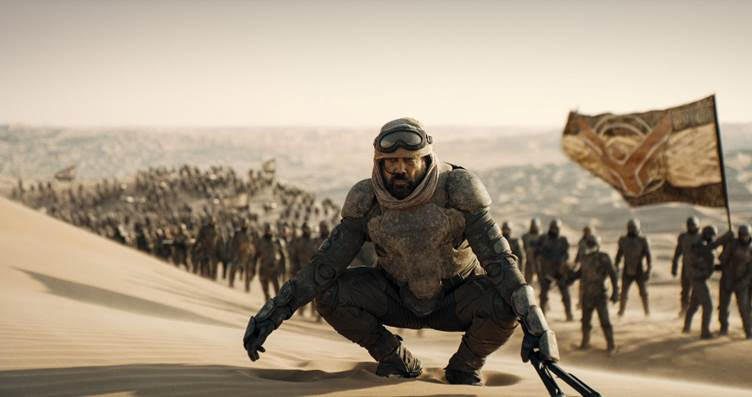
Through the lens of cultural imperialism, Dune warns of the environmental degradation that remains a pressing issue today. The deep spirituality of the Fremen in relation to the desert contrasts with the exploitative tendencies of outsiders. Dune challenges readers to consider the complex relationships between survival and the consequences of environmental neglect.
The book explores the intricate dynamics between religion, the materialistic nature of power, and the importance of individual agency while also warning about the potential dangers of blind faith. The Bene Gesserit manipulate belief systems for their own ends, while the Fremen’s faith serves as a rallying point for resistance. Dune examines the latent dangers of religious fanaticism and the critical importance of maintaining individual thought amid dogma.

For those interested in philosophy, Dune raises questions about free will and the burden of leadership (Messiah complex). Paul Atreides is seen as a messianic figure, grappling with his destiny and the manipulations of those around him who view him as a tool. The narrative explores the dangers of authoritarianism, the weight of prophetic power, and the struggle to maintain one’s moral integrity amidst societal upheaval.
The power dynamics of the Bene Gesserit and their influence on bloodlines, leading Lady Jessica to bear a daughter, reflect the intricate interplay of gender within the narrative. This conflict between Paul and his mother, should he succeed in his quest for power, highlights the potential for shifting authority to women. This theme is evident in the film adaptation of Dune, featuring Timothée Chalamet and Rebecca Ferguson as they navigate their complex relationship, striving to forge alliances with the Fremen.

Denis Villeneuve’s adaptation and the upcoming sequels will continue to explore the depth and scale of Dune, revealing the layers of meaning that Frank Herbert embedded within. Each viewer can discover their interpretations, making the experience of watching Dune: Part Two a profound exploration of themes that resonate deeply.
DUNE: PART TWO – titled in Vietnamese as DUNE: HÀNH TINH CÁT – PHẦN HAI – premieres in theaters today, March 1st, featuring screenings in 2D, IMAX 2D, 4DX, Screen X, and Ultra 4DX, bringing the epic journey of Dune to audiences across Vietnam.




















